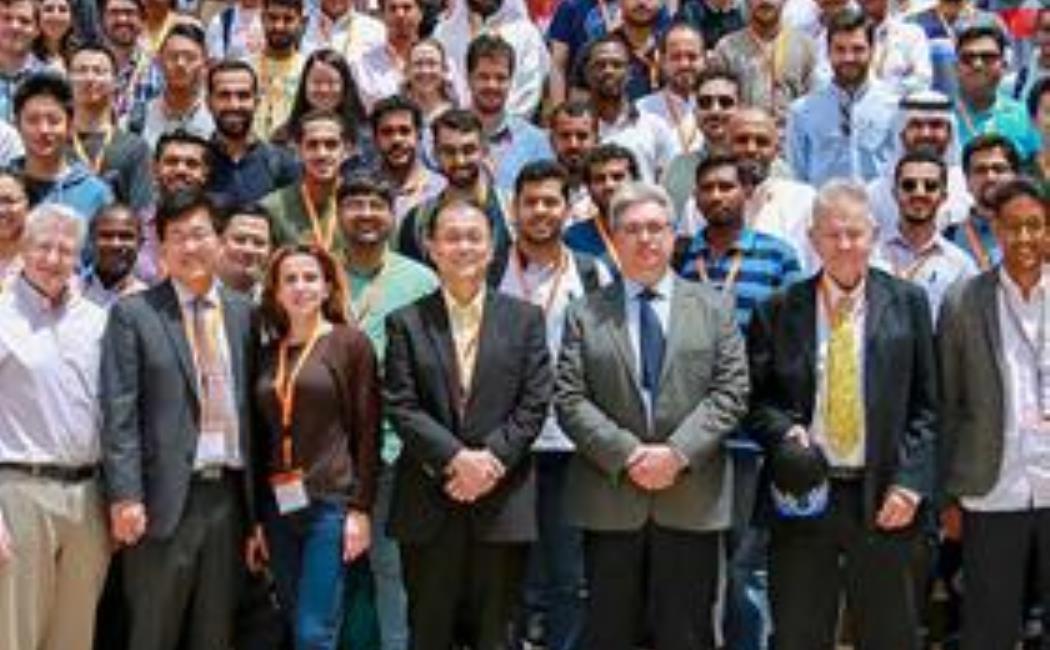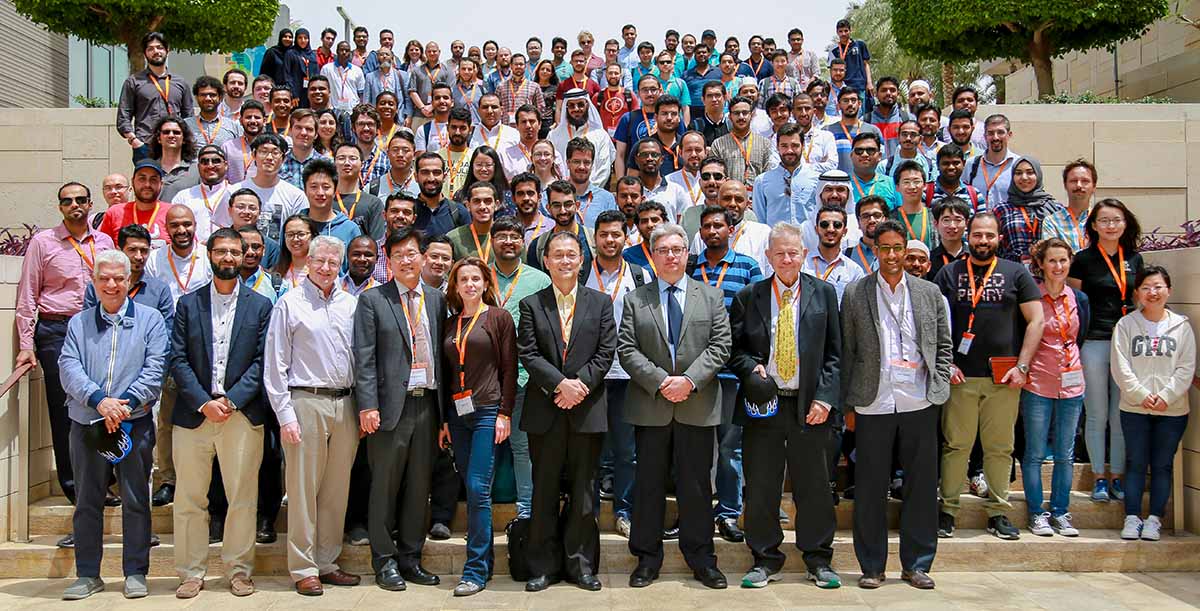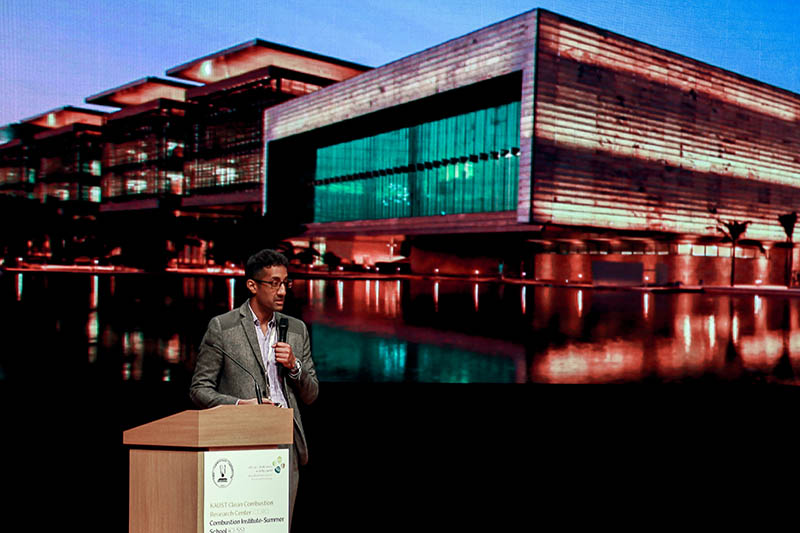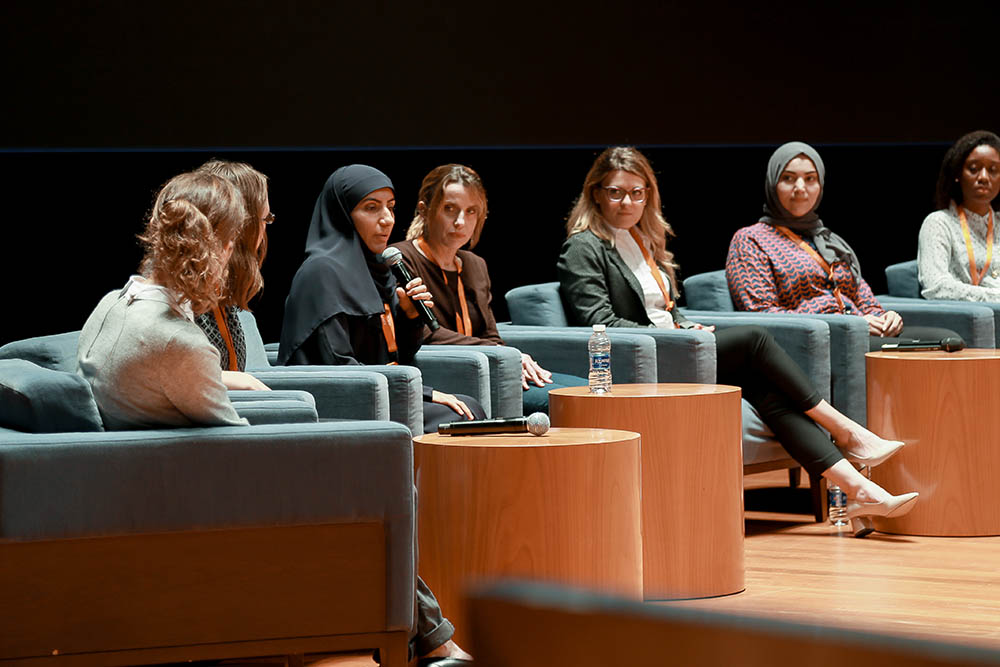


07 June, 2018

During the first week of April, the CCRC hosted the KAUST Combustion Institute Summer School, the first school in the Middle East and North African regions to be sponsored by the Combustion Institute. In this five-day event, distinguished professors and experts in the field of combustion shared their knowledge with students from all over the world. The summer school focused on fundamental combustion in three sessions: flame, engines and fuel, in addition to workshops, networking, and lab demonstrations. More than 80 in-kingdom students, industry participants, and professors, as well as 20 international students, attended the event

Prof. Mani Sarathy , Associate Director, CCRC
In his opening address, Associate Director of the CCRC, Prof. Mani Sarathy, said “This school represents combustion research across the globe, which reflects the aim of the Combustion Institute: To encourage global interaction in the field of combustion.”
In the flame session, Professor Kaoru Maruta, from Tohoku University in Japan, offered an intuitive image of flame fundamentals, introducing experimental phenomena that included flame basics, flammability limits, and flames under extreme conditions,
based on experimental methods. KAUST’s Hong Im gave a related presentation about fundamental flame theory and its application for practical use.
KAUST’s Bengt Johansson introduced concepts and applications of internal combustion engines and other low temperature combustion systems in the engine session. Anthony Dean, from GE Global Research, walked his audience through the twentieth century’s
exciting progress in power generation. He introduced propulsion and power generation in the current context, as well as recent global trends. Finally, he explored the details of combustion.
A gas turbine engine design workshop allowed students to design a small conceptual hybrid-electrical gas turbine. It was a great opportunity for teamwork, using knowledge and rationale to solve practical industrial problems and meet the requirements most students will encounter during their careers.
In the fuel session, KAUST’s Aamir Farooq discussed fuel fundamentals based on characterization, experimental chemical kinetics and kinetics diagnostics. Angela Violi, from the University of Michigan, talked about fuel surrogates and the formation of aromatics, PAHs, and soot. Violi said, “From my perspective, the goal of summer school is not only to learn, but to broaden your interests and perhaps explore something different in the future.” Students teamed up in the fuel workshop, exploring and designing jet fuel surrogates under realistic situations.

The role of women, and their experience in the combustion community was discussed on the last day, at the “Women in Combustion Science” workshop. Maryam AlTaher, from Saudi Aramco, observed that “Humans are capable of bringing value to any discipline, regardless of whether they are male or female. Women are in combustion not to compete, but to complete.”
Lectures and workshops from the KAUST Combustion Institute Summer School can be found on
YouTube and
Facebook.
Originally published in the CCRC Summer Newsletter, 2018.